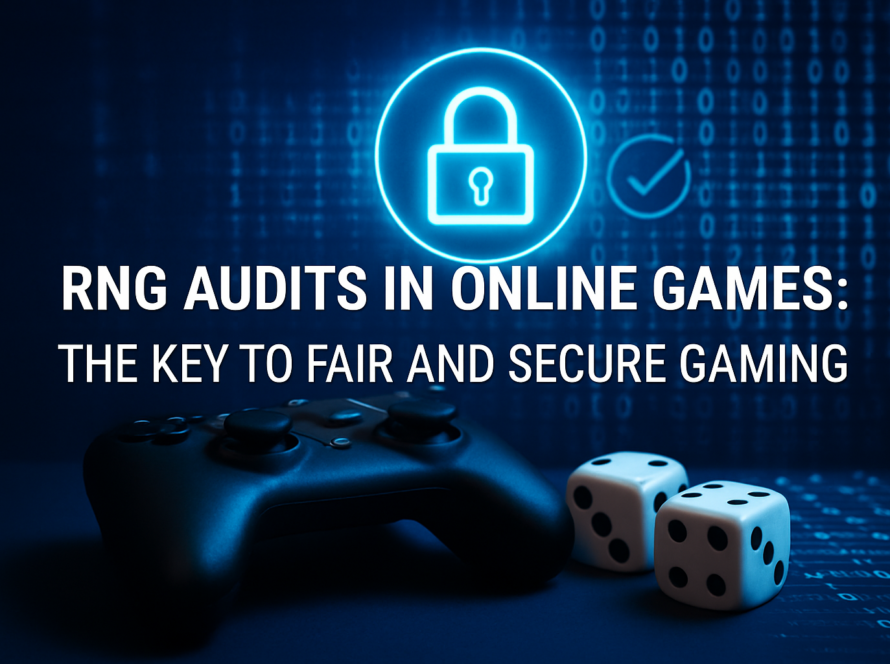In the ever-growing gaming and iGaming industry, trust is treated as a critical currency. Whether it’s a casual skill game, a fantasy sports platform, or a real-money tournament, the demand for transparency and fairness is consistently raised by players. Therefore, to maintain credibility and regulatory compliance, RNG testing in fair play certification must be prioritized.
While Random Number Generators (RNGs) are widely recognized as the backbone of unpredictability in digital games, randomness alone is not enough. It must be measured, verified, and certified through proper testing procedures. For this reason, developers are required to undergo strict RNG evaluations as part of a broader fair play certification process—often conducted by accredited labs.
What is RNG Testing?
RNG testing, also referred to as Random Number Generator testing, is the process through which a game’s RNG algorithm is evaluated. During this process, it is ensured that the RNG produces unbiased, unpredictable, and statistically sound outcomes.
As part of the standard testing process, the following areas are verified:
- Uniform distribution of random results
- Absence of detectable patterns or repetition
- Immunity from manipulation or bias
- Adherence to international compliance standards (e.g., GLI, iTech Labs, BMM)
In addition to being used in pure chance-based games such as card draws or loot wheels, RNG systems are frequently integrated into hybrid or skill-based games, where random events influence parts of gameplay. As a result, the validation of randomness becomes critical in maintaining player confidence and legal defensibility.
What is Fair Play Certification?
Fair play certification is defined as a formal validation process that confirms a game operates in a fair and ethical manner. Typically, this certification is provided by independent third-party auditors or testing labs. Multiple components of the game are reviewed to ensure impartiality and compliance.
The key components usually include:
- Validation of RNG behavior
- Game logic verification
- Server and database integrity checks
- Outcome reproducibility
- Anti-cheating infrastructure
- Security risk assessments
Once the game passes the audit, a fair play certificate is issued. This certificate acts as a trusted signal to players and regulators, indicating that no outcome has been manipulated or skewed in favor of any party.
Importance of RNG Testing in Fair Play Certification
The relevance of RNG testing in fair play certification can hardly be overstated. Several important benefits and requirements are directly connected to this process:
1. True Randomness Must Be Verified
To ensure a fair gaming experience, each outcome must be determined in a statistically random manner. Therefore, RNG testing is conducted using industry-accepted methods such as Chi-Square, Diehard, and NIST testing frameworks. These methods are designed to detect whether hidden patterns or irregularities exist.
By passing these tests, a game can confidently demonstrate that every result is generated fairly—free from manipulation.
2. Player Trust Is Strengthened
In today’s competitive gaming landscape, players are becoming more informed and cautious. Certification seals and RNG audit badges are actively sought out by users. When platforms have undergone proper RNG testing in fair play certification, it reassures users that game outcomes are not influenced or rigged.
As a result, long-term trust is cultivated, and user retention is significantly improved.
3. Regulatory Requirements Are Fulfilled
It must be noted that in most regulated jurisdictions—such as those governed by MGA, UKGC, or India’s self-regulatory gaming codes—RNG testing is a mandatory compliance requirement. Games that fail to meet these standards may have their license applications rejected or existing certifications revoked.
Therefore, RNG certification acts as a gatekeeper for legal market access.
4. Legal Risk Is Minimized
Without certified testing, platforms expose themselves to legal disputes and fraud claims. In contrast, certified RNG systems create a clear audit trail. This enables disputes to be resolved transparently, using data to demonstrate that game outcomes were fairly generated.
Thus, legal and reputational risks are effectively minimized.
5. Fair Play Culture and Loyalty Are Encouraged
Players are more likely to return to platforms where they feel their performance is measured honestly. Through RNG testing in fair play certification, a platform reinforces its reputation for fairness. As a result, brand loyalty increases, and the churn rate is reduced.
Furthermore, such certification contributes to a healthy, competitive ecosystem, free from manipulation.
How RNG Testing in Fair Play Certification Is Performed
A highly structured methodology is followed when RNG testing is performed. Generally, the testing process is divided into the following steps:
- Source Code Review: The RNG algorithm is thoroughly inspected to verify the absence of intentional bias or hidden logic.
- Statistical Testing: Large data sets are generated and tested using advanced statistical methods to evaluate the true randomness of outcomes.
- Seeding Validation: It is confirmed that the initial values (seeds) used by the RNG are generated securely and cannot be reverse-engineered.
- Output Replay: Logged game data is reproduced to verify that outcomes remain consistent under the same conditions.
- Entropy Measurement: The system is checked to ensure that sufficient entropy is being used to prevent predictability.
Moreover, this testing is expected to be conducted periodically, particularly after software updates, game logic changes, or the introduction of new features.
When Is RNG Testing Required?
RNG testing is generally performed under the following scenarios:
- When launching a new game with RNG-based outcomes
- Before applying for regulatory licenses or certifications
- During app store approval processes in compliance-heavy regions
- When existing RNG logic is modified or replaced
- While entering international markets with varying compliance norms
In all such instances, RNG testing forms a fundamental requirement for ensuring both compliance and fairness.
Final Thoughts
In the digital gaming landscape, fairness must be demonstrated—not just claimed. By completing RNG testing in fair play certification, developers send a strong message to players, regulators, and partners that their systems are fair, transparent, and trustworthy.
Without this certification, any claims of randomness remain unverified. However, when the certification is achieved, it brings legal compliance, player confidence, and long-term platform growth. For developers aiming to scale in regulated or high-trust markets, RNG testing is not just useful—it’s essential.



